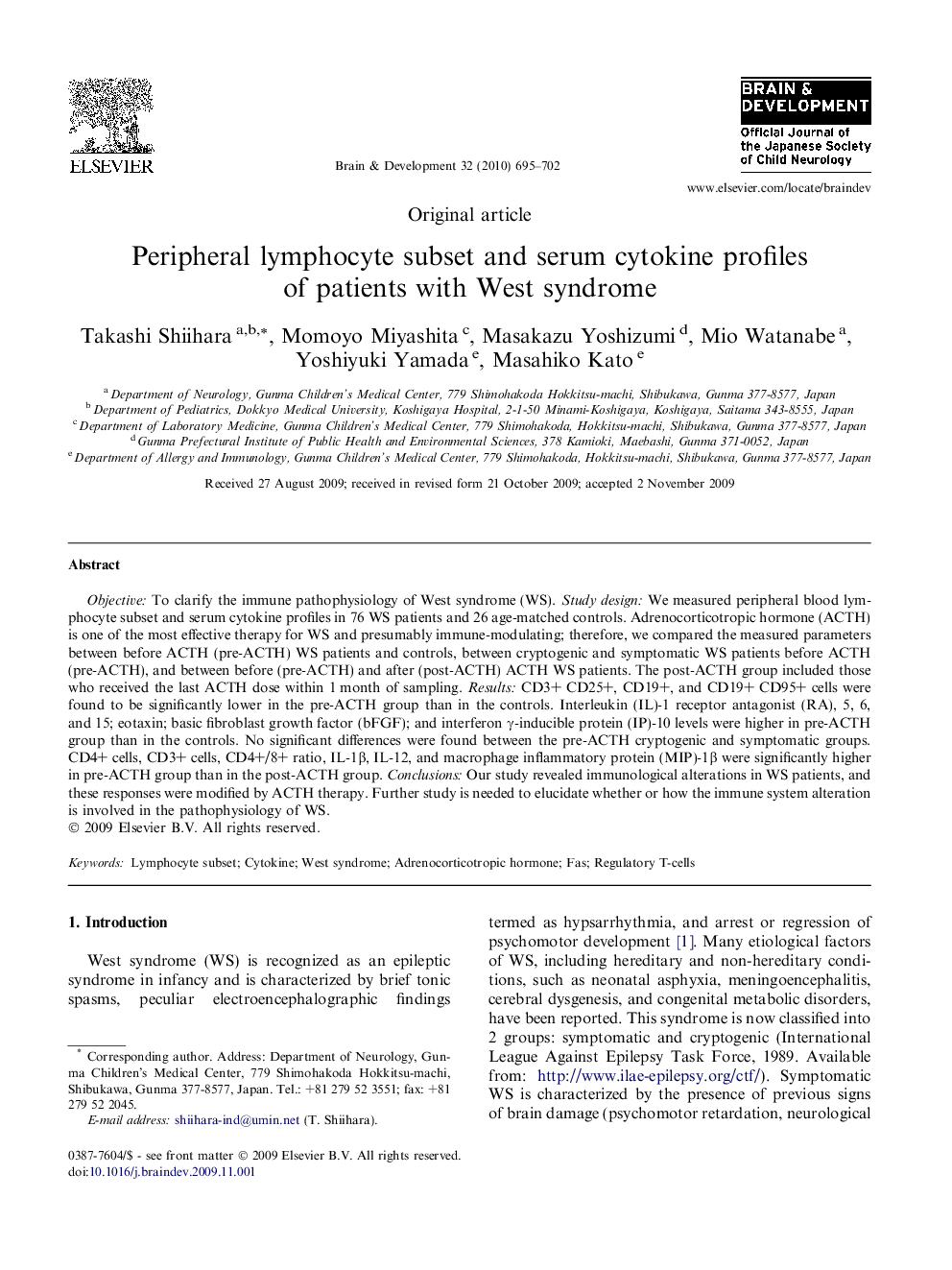| Article ID | Journal | Published Year | Pages | File Type |
|---|---|---|---|---|
| 3037897 | Brain and Development | 2010 | 8 Pages |
Objective: To clarify the immune pathophysiology of West syndrome (WS). Study design: We measured peripheral blood lymphocyte subset and serum cytokine profiles in 76 WS patients and 26 age-matched controls. Adrenocorticotropic hormone (ACTH) is one of the most effective therapy for WS and presumably immune-modulating; therefore, we compared the measured parameters between before ACTH (pre-ACTH) WS patients and controls, between cryptogenic and symptomatic WS patients before ACTH (pre-ACTH), and between before (pre-ACTH) and after (post-ACTH) ACTH WS patients. The post-ACTH group included those who received the last ACTH dose within 1 month of sampling. Results: CD3+ CD25+, CD19+, and CD19+ CD95+ cells were found to be significantly lower in the pre-ACTH group than in the controls. Interleukin (IL)-1 receptor antagonist (RA), 5, 6, and 15; eotaxin; basic fibroblast growth factor (bFGF); and interferon γ-inducible protein (IP)-10 levels were higher in pre-ACTH group than in the controls. No significant differences were found between the pre-ACTH cryptogenic and symptomatic groups. CD4+ cells, CD3+ cells, CD4+/8+ ratio, IL-1β, IL-12, and macrophage inflammatory protein (MIP)-1β were significantly higher in pre-ACTH group than in the post-ACTH group. Conclusions: Our study revealed immunological alterations in WS patients, and these responses were modified by ACTH therapy. Further study is needed to elucidate whether or how the immune system alteration is involved in the pathophysiology of WS.
